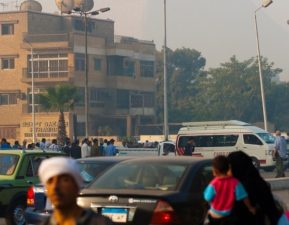 Ahmed Abdel Azim and his team at Suez Canal University advance research in mycology (fungi)
Ahmed Abdel Azim and his team at Suez Canal University advance research in mycology (fungi)
Its not the first time that Green Prophet covers stories on how Egyptian scientists are applying science to public policy. In 2011 Azza Abdel Hamid Faiad, winner of the European Union Contest for Young Scientists, found a new way of turning plastic into biofuel. In the last couple of years mycology research in Egypt has been flourishing as new research studies and projects are beginning to look at ways in which fungi could help overcome many of the economic and social problems in the Middle East North Africa region.
In 2010 Ahmed Abdel Azim, mycologist at Suez Canal University and founder of the Arab Society for Fungal Conservation, published the first fully documented checklist of 2281 species of fungi in Egypt. In an interview with Green Prophet, Abdel Azim reveals some of the many research projects which could help tackle waste and soil pollution, fuel scarcity and food security in the Arab world.
Fungi for waste and soil pollution
While Hekmat M. Morshedy, a Ph D. student in systematic mycology at the Suez Canal University, is researching the possibility of using fungi to fragment and decompose plastic waste in a quest to tackle Egypt’s infamously large landfills; Hussein M. Rashad, a master degree researcher is looking at ways in which fungi can help drain heavy metals in contaminated soils and water.
By isolating different species of fungi that are able to decompose plastic or accumulate heavy metals, such as those found in the polluted sediments of lake Manzala, fungi could help “clean up” after human waste and purify polluted natural environments.
Although these are important steps towards applied science in the MENA region, several questions remain regarding the secondary effects of gas produced by the fungi as they decompose plastic or the effects of having higher quantities of fungi in water streams.
Fungi for Fuel
Abdel Azim and his team are bioprospecting some Egyptian fungi for the efficient production of biodiesel. Abdel Azim believes the fuel crisis could be resolved by using mycodiesel fungi, which provide a promising alternative to fossil fuels by producing biodiesel in a “natural” and cheap way. He believes that “while crops normally have to be converted to sugar and fermented before they can be turned into useful fuel, we are finding that fungi isolated from different ecological habitats in Egypt are rich with several active molecules that could directly produce biodiesel.”
 Ascospores of Thielavia Gigaspora, a news species of fungi discovered in 2008 by Abdel-Azeem and Moustafa Abdoul Waheed
Ascospores of Thielavia Gigaspora, a news species of fungi discovered in 2008 by Abdel-Azeem and Moustafa Abdoul Waheed
Fungi for food security
Basem Balbol a master student at the Suez Canal University has isolated Eurotium, a fungus which is able to grow in soils with 30% salt concentrations. This could help advance the realization of salt tolerant genetically modified wheat strains which could eventually be irrigated by seawater, increasing the country’s wheat production and decreasing its reliance on imports.
However, the possible negative impacts of genetically modified wheat and the negative environmental consequences of using seawater as irrigation water should be firmly taken under consideration before applying “lab science” to an ecosystem.
As long as the application of science remains thoughtful and cautious, it is extremely refreshing to see scientific research and innovation flourish in the Middle East.



